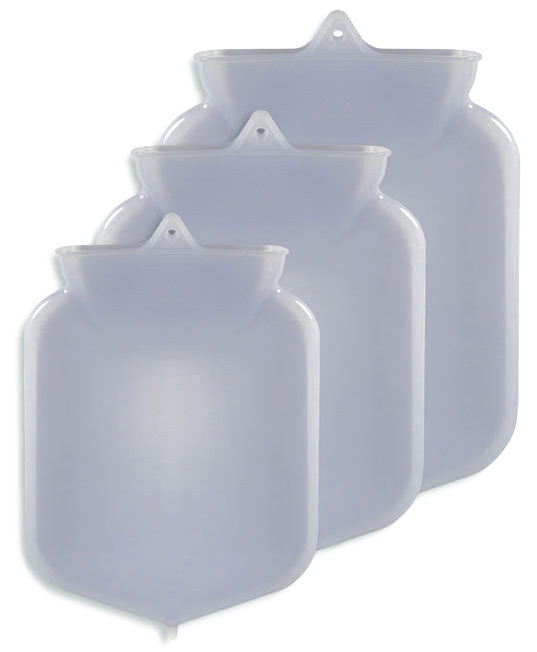Last Updated on January 6, 2025
Yes, taking an enema while pregnant is generally safe but should only be done under medical supervision. During pregnancy, constipation is a common issue due to hormonal changes and increased pressure on the intestines.
An enema can help relieve constipation by softening the stool and facilitating its passage. However, it is crucial to consult a healthcare provider before using an enema to ensure it is appropriate for your specific situation and to receive proper instructions on administration and any potential risks.
Not all enemas are created equal, so it is essential to use one that is specifically designed for pregnant women and follow the instructions precisely to avoid any complications.

Credit: www.optimalhealthnetwork.com
What Is An Enema And How Does It Work During Pregnancy?
Definition Of An Enema
During pregnancy, many women may experience constipation or other digestive issues that can be uncomfortable and frustrating. An enema is a common method used to relieve constipation by inserting liquid into the rectum, which helps stimulate bowel movements. It is considered a safe and effective way to alleviate constipation, but it’s important to understand how it works and any potential risks involved during pregnancy.
Purpose And Benefits Of Enemas
Enemas have been used for centuries as a natural remedy for constipation and other digestive issues. Here are the key points to remember about the purpose and benefits of enemas during pregnancy:
- Enemas work by lubricating the rectum and colon, softening the stool, and promoting bowel movements. This can help alleviate constipation and provide much-needed relief.
- They are a non-invasive method that allows for direct administration of the liquid into the rectum, bypassing the digestive system.
- Enemas can help cleanse the colon and remove any fecal matter that may be stuck, providing a clean slate for better digestive health.
- By promoting regular bowel movements, enemas can help prevent hemorrhoids, a common issue during pregnancy due to increased pressure on the rectum.
- Enemas are generally safe to use during pregnancy, but it is crucial to consult with a healthcare professional before attempting to use one.
Potential Risks And Side Effects During Pregnancy
While enemas are generally safe, there are a few potential risks and side effects to be aware of, especially during pregnancy. It’s important to keep these considerations in mind:
- Overuse of enemas can disrupt the natural balance of the gut flora, leading to potential digestive problems.
- Incorrect insertion of the enema tube can cause discomfort, irritation, or injury to the rectum.
- The pressure exerted by the liquid during an enema can trigger contractions in the uterus, which may pose a risk to the pregnancy.
- Pregnant women with certain medical conditions, such as placenta previa or a history of preterm labor, should avoid using enemas without consulting their healthcare provider.
Remember, it is always best to consult with your healthcare provider before attempting to use an enema while pregnant. They can provide personalized advice based on your specific health needs and guide you towards the safest and most effective methods to relieve constipation during pregnancy.
Safety Considerations For Taking Enemas During Pregnancy
Taking an enema while pregnant is a topic that raises many questions and concerns. It’s important to prioritize your safety and well-being during this delicate time. Before proceeding with any treatment, it is crucial to consult with your healthcare provider.
They can provide personalized advice based on your individual circumstances and medical history. To ensure a safe and comfortable experience, there are several key considerations to keep in mind when it comes to using enemas during pregnancy.
Consultation With Healthcare Provider Before Using Enemas:
- Schedule an appointment with your healthcare provider to discuss your intention to use enemas during pregnancy.
- Be prepared to provide information about any previous or existing medical conditions, as well as any medications or supplements you are currently taking.
- Your healthcare provider can evaluate whether enemas are safe for you based on your unique circumstances.
- They can offer guidance on the frequency, timing, and specific type of enema solution that is most suitable for your pregnancy.
- Remember that each pregnancy is different, and your healthcare provider will be able to offer personalized advice tailored to your situation.
Understanding The Safety Of Specific Enema Solutions:
- Different types of enema solutions may have different safety considerations during pregnancy.
- Saline enemas, which consist of a saltwater solution, are generally considered safe during pregnancy.
- Herbal or medicated enemas may contain ingredients that could pose potential risks to the developing fetus. It is essential to consult with your healthcare provider before using these types of enemas.
- Your healthcare provider can recommend enema solutions that are approved for use during pregnancy and minimize any potential risks.
Importance Of Proper Administration Techniques During Pregnancy:
- Proper administration techniques are vital to ensure safety and effectiveness when using enemas during pregnancy.
- Make sure to thoroughly read and follow the instructions provided with the enema kit.
- Maintain good hygiene by washing your hands before and after administering the enema.
- Ensure the enema equipment is clean and sterile to avoid any infections or complications.
- When inserting the enema nozzle, be gentle and cautious to prevent any discomfort or injury.
- If you experience any unusual or concerning symptoms during or after using an enema, contact your healthcare provider immediately.
Taking enemas during pregnancy requires careful consideration and consultation with your healthcare provider. By following the recommended safety guidelines and proper administration techniques, you can take steps to ensure a safe and beneficial enema experience during this special time. Remember, your healthcare provider is the best source of guidance and personalized advice for your specific pregnancy needs.
Frequently Asked Questions On Can You Take An Enema While Pregnant?
Can You Take An Enema While Pregnant?
Yes, you can take an enema while pregnant, but it’s important to consult your doctor first to ensure it is safe for you and your baby.
Is It Safe To Use Enemas During Pregnancy?
Using enemas during pregnancy can be safe, but it’s crucial to get medical advice as certain factors may affect the safety and appropriateness for you.
Are There Any Risks To Using Enemas When Pregnant?
While enemas are generally safe, risks such as infection, irritation, electrolyte imbalance, or premature labor may occur during pregnancy. Speak to your healthcare provider to understand the potential risks.
Can Enemas Cause Harm To The Fetus?
When used properly, enemas should not cause harm to the fetus. However, it’s important to follow your doctor’s guidance and use enemas cautiously to prevent any potential harm or side effects.
How Can Enemas Help During Pregnancy?
Enemas can provide relief from constipation, a common issue during pregnancy. They can help soften stool and promote regular bowel movements, providing comfort and easing discomfort. Always consult your healthcare provider before using enemas.
Conclusion
Taking an enema while pregnant can be a controversial topic with varied opinions. However, based on the information presented in this blog post, it is clear that there are potential risks associated with using an enema during pregnancy. It is essential to prioritize the health and safety of both the mother and the developing baby.
Consultation with a healthcare professional is crucial before considering any form of treatment during pregnancy, including enemas. They can provide personalized guidance and ensure that the chosen method is safe and suitable for the individual’s specific situation. Always follow your healthcare provider’s advice and make informed decisions about your health and well-being.
Remember, pregnancy is a delicate period, and taking precautions is of utmost importance. By staying informed and seeking professional guidance, expectant mothers can maintain a healthy and safe pregnancy journey.











